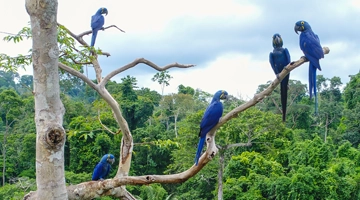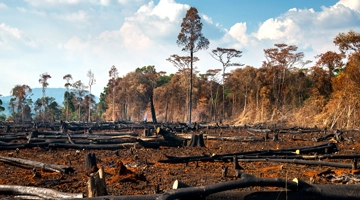 https://www.3keel.com/wp-content/uploads/2025/11/sf_webinar1.webp
200
360
Carole Scott
https://www.3keel.com/wp-content/uploads/2023/04/3keel_logo-1.png
Carole Scott2025-11-20 11:42:492025-11-20 11:44:49New 3Keel webinar: Addressing deforestation
https://www.3keel.com/wp-content/uploads/2025/11/sf_webinar1.webp
200
360
Carole Scott
https://www.3keel.com/wp-content/uploads/2023/04/3keel_logo-1.png
Carole Scott2025-11-20 11:42:492025-11-20 11:44:49New 3Keel webinar: Addressing deforestationCASE STUDY Co-op Retail
Striving for progress in sustainable fish and seafood for UK consumers
The challenge of sustainable fish and seafood sourcing
UK retailers face significant challenges in sourcing sustainable fish and seafood, shaped by environmental degradation, climate change and ethical issues. In this case study, we look at how 3Keel has supported a leading UK retailer with a diagnostic tool to assess risks.
Ensuring long-term sustainability in fish and seafood sourcing is complicated by the need to interpret multiple certification schemes, maintain supply-chain transparency, and meet demand for affordable products. On top of that, retailers must also address ethical issues such as fair labour, bycatch of vulnerable species, and the use of feed from food-insecure areas. Meeting the expectations of consumers and NGOs requires transparent supply chains and sustained investment in sustainable practices. Real progress requires not just sourcing from well-managed fisheries, but helping improve those that aren’t. By staying engaged, retailers can help drive systemic change.
Meeting these challenges head on: Co-op
Co-op has a longstanding commitment to sustainability, rooted in its cooperative values. Its Future of Food approach sets out sustainability across three chapters – sourcing with care, treating people fairly, and learning and celebrating together.
Through Co-op’s Healthy Oceans Strategy, the retailer demonstrates its commitment to care for the marine environment. It is part of the Ocean Disclosure Project and supports credible certification where it drives change and takes a restorative approach to ecosystems.
3Keel has been a trusted partner to the company for many years, offering expertise across diverse areas of its sustainability strategy. In fisheries, our knowledge spans the complex links between aquaculture, feed sourcing, and broader sustainability issues like deforestation. We also support the Sustainable Seafood Coalition as Secretariat. Drawing on this experience, Co-op turned to us to help evolve its strategy and approach to responsible sourcing for fish and seafood.
“3Keel’s involvement has helped ensure our risk assessment remains robust, up-to-date and reflective of the latest developments in the seafood industry.”
Fisheries and seafood risk assessment
Our goal was to develop a comprehensive view of the risks associated with sourcing across all fishing and farming methods, species, and FAO (Food and Agriculture Organisation of the UN) regions that could feature in the supply chain. Our work included evaluating the strengths and limitations of various certification bodies, identifying potential blind spots, and determining where additional risk indicators would be needed to ensure full coverage.
We benchmarked the Co-op’s existing risk matrix against:
- the largest certification bodies practices; and
- what 3Keel defines as good sourcing practices.
We combined our expertise in the topic with the best available science, from research papers and stock assessments conducted by fisheries management and scientific bodies such as the International Council for the Exploration of the Sea (ICES).
To validate our findings and strengthen them with specialist input, we conducted two interviews with Boris Sulzberger of Assurance Services International, a leading authority on aquaculture accreditation.
Targeting risks: a diagnostic tool for sustainable seafood sourcing
To help identify potential sustainability risks, we developed a targeted catalogue of diagnostic questions, aligned to key elements of the sourcing strategy – such as species, catch area, certification status and sustainability commitments.
Risks focus on unsustainable practices, such as environmental degradation, bycatch or illegal, unreported and unregulated catches. Each question was risk-rated using a Red-Amber-Green (RAG) system, assessing its likelihood of being linked to such practices. Where possible, these ratings were benchmarked against the Marine Stewardship Council (MSC) position, to provide an added layer of credibility and context. Every rating included a rationale to ensure transparency and traceability in the assessment.
We also proposed a set of supplementary questions to help Co-op deepen its understanding of emerging risks and blind spots across the portfolio.
“This framework plays a critical role in ensuring that our seafood sourcing remains responsible, ethical, and aligned with industry best practices.”
Roadmap for action: from risk to responsibility
Co-op has now updated its risk matrix, based on 3Keel’s diagnostic framework and the additional questions. It equips the team to more easily identify, categorise and respond to seafood sourcing risks.
Sam Darley, Fisheries and Aquaculture Manager, says: “In 2024, Co-op engaged sustainability consultancy 3Keel to conduct an external review and update of our risk assessment framework for all fish sources. This framework plays a critical role in ensuring that our seafood sourcing remains responsible, ethical and aligned with industry best practices.
“Given the evolving nature of global fisheries, regulatory changes and emerging sustainability challenges, we recognised the need for an independent, expert-led review. 3Keel’s involvement has helped ensure our risk assessment remains robust, up-to-date and reflective of the latest developments in the seafood industry.”
Get in touch
If you need support with strategy and implementation to build a robust action plan that covers marine, aquaculture, fisheries and seafood, please get in touch with Eve Nelson and Julian Engel using this form or by calling the office on +44 1865 236500.





